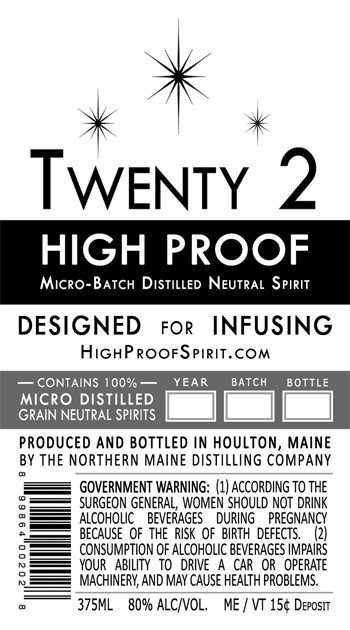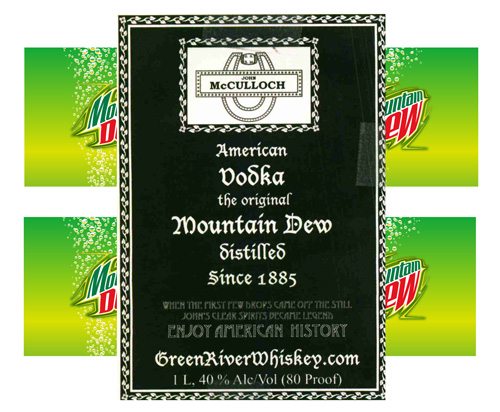It’s not every day that you see COLA news on the front page of the newspaper, but it does happen from time to time. On Saturday, The Wall Street Journal featured COLA news on the front page. The story explained that no less than three companies have been trying to use Buffalo Bill as part of their branding — with two of them fighting it out in court. “The two entrepreneurs are fighting in court for the exclusive right to sell beer that trades on the musky aura of adventure surrounding Army-scout-turned-bison-hunter-turned-sharpshooting-showman William F. Cody.” Eric Bischoff got his first COLA in March of 2011 (and the second one is here). He is a “former professional wrestling icon.” While Bischoff already has the COLAs and applied for the trademark, it looks like Mike Darby has been selling beer under the Buffalo Bill name since before Bischoff. But “Mr. Darby failed to get federal approval of his label, as required by the law. (Mr. Darby says he thought the brewer and distributor had taken care of that.)” Darby owns a hotel in Cody, Wyoming “built by Buffalo Bill in 1902.” Darby “had to pull his beer from the market” while awaiting label approval. The third company is affiliated with Bill Owens, but is not interested...
Continue Reading Leave a CommentMake Your Own Spirits

It’s clearly okay to go home, add some tomato juice to your vodka, and call it a bloody mary. And it’s almost certainly a bad idea to go home and fire up your small pot still, to make just a little spirits. Somewhere in the middle, we now have “High Proof Micro-Batch Distilled Neutral Spirit Designed for Infusing.” It comes in a 375 ml. bottle, at 160 proof. It is made by The Northern Maine Distilling Company, of Houlton, Maine. The first related approval seems to go back about one year. It mentions that the vodka is designed for “infusions, extractions, mixology, and culinary applications.” The information-packed website explains:
160 Proof? Yikes! Don’t freak over the proof! The high concentration of alcohol makes Twenty 2 HPS perfect for infusing fruits, vegetables, meats, or dairy into vibrant liqueurs or flavored vodkas. Think of the 160 Proof like a very sharp knife in your kitchen. If you handle the knife with respect, it can perform amazing tasks. Same with the High Proof Spirit. It’s “sharp blade” creates infusions in hours, not weeks.
We think Northern’s COLA is interesting because we don’t know of too many other products designed for this manner of use. Also, the label underscores that TTB has no problem with...
Continue Reading Leave a CommentTags: business strategy, drinkwire, policy
Trampy Beer and Wine, and a Vigorous Defense Thereof

Some of the Clown Shoes beer labels, such as Tramp Stamp and Lubrication, are leading to lots of controversy. This got us to reading about the graphic designer for both. While we reserve judgment about the labels at issue, the blog post by the label designer for Clown Shoes is so good and vigorous that we wanted to cover it here. The designer of the label on the left is Stacey George. She is based in Massachusetts, and she talks about the issues in a July 6, 2011 post entitled “Sometimes, a Pipe is Just a Pipe.”
“Are Clown Shoes’ labels offensive?” Sure. Why not? Offensive is a subjective term. If you look at the labels and find yourself offended, there you go. Do you have the right to say so? Abso-friggin-lutely! Shout it from the highest mountain, or your Twitter account, or your brothers’ website, whatever your bullhorn is, use it, loud and proud. Here, let me loan you a sandwich board and a bell, you can be offended Town-Crier style, I got your back.
Continue Reading Leave a CommentMy labels for Clown Shoes—which were named Best Craft Beer Art of 2011 by PourCurator.com—are not illustrated with a sexist intent. For instance, a Tramp Stamp is a tattoo placed on the lower back...
Risque Beer

These brands may be sophomoric, but apparently they are not illegal. The first is bottled by Minhas Craft Brewery of Monroe, Wisconsin. The second is bottled by Arcadia Brewing Company of Battle Creek, Michigan. If it’s tough to imagine who would buy or drink these beers, or where are the limits, just try to imagine the opposite adjective. For a lively discussion of whether such labels go too far, follow these links about Lubrication (by Clown Shoes).
Continue Reading Leave a CommentThe Original Mountain Dew

I would have thought John Robert McCulloch would get his keester sued off. But maybe he’s right and it’s the soda people who grabbed his brand and ran with it. The approval mentions that “Mountain Dew is the brand John McCulloch sold vodka under from 1885 until put out of business by Prohibition.” I’d wager that’s earlier than Pepsi or any of its forebearers put the lithiated green soda into commerce. As it turns out, Wikipedia confirms that: “The original formula (for the soda) was invented in the 1940s by two Tennessee beverage bottlers, Barney and Ally Hartman, and was first marketed in Marion, VA, Knoxville and Johnson City, Tennessee. … The Mountain Dew brand and production rights were acquired by PepsiCo in 1964, at which point its distribution expanded more widely across the United States.” The Hartmans got the name from “a colloquial term for moonshine whiskey” and got the trademark rights soon after. The McCulloch website makes it quite clear that Mountain Dew was widely used on spirits well before the soda came along. The site also has a lot of old-fashioned spirits advertising, along with the quaint and none too subtle tagline “The Whiskey Without a Headache.”
Continue Reading Leave a CommentTags: drinkwire, history, trademarks-beverage


